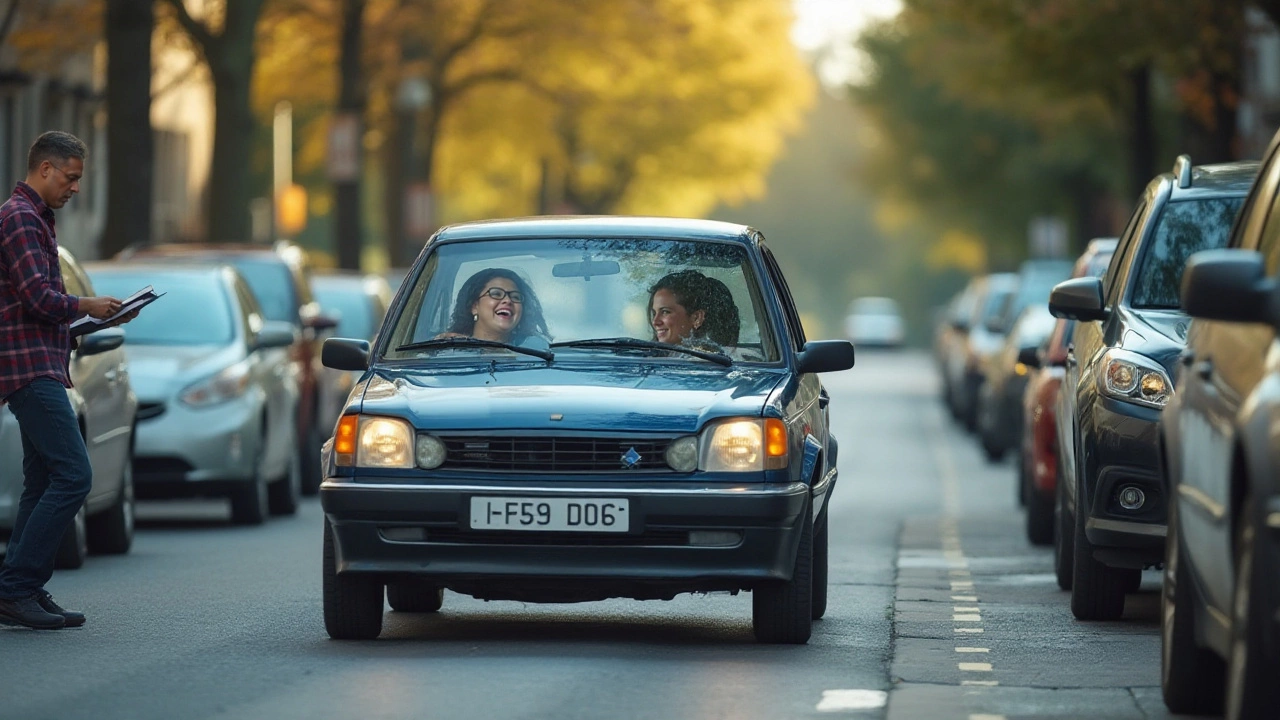Parallel Parking Tips for HGV Drivers
Parallel parking a big rig feels like fitting a puzzle piece into a tiny gap. The good news? It’s all about a solid routine and a few mental cues. Follow these steps, avoid typical slip‑ups, and you’ll be confident both in the test centre and on the street.
Step‑by‑Step Routine
1. Spot the space. Choose a slot at least 1.5 times your vehicle’s length. If you’re not sure, add a metre – it’s easier to adjust than to miss the mark.
2. Position your HGV. Pull up alongside the parked vehicle, leaving about a meter between rear bumpers. Your mirrors should line up with the rear corner of the car ahead.
3. Check mirrors and blind spots. Give a quick glance over your shoulder, then signal. Make sure no cyclists or pedestrians are lurking.
4. Start the reverse. Turn the steering wheel full lock towards the curb and begin backing up slowly. Keep your speed at a crawl – the truck’s momentum can surprise you.
5. Watch the front of your cab. When the front of your cab clears the rear of the car ahead, straighten the wheel and continue reversing straight into the space.
6. Straighten out. As the rear of your vehicle reaches the curb, turn the wheel full lock away from the curb and pull forward a little to line up in the centre of the space.
7. Final check. Make sure you’re no more than 30 cm from the curb and that you can see the rear of the vehicle behind you without straining.
Common Mistakes and How to Fix Them
Overshooting the curb. If you end up too far from the curb, stop, shift to neutral, and roll forward a few metres before retrying. Small adjustments save big frustration.
Turning the wheel too early. Many drivers panic and start turning before the front of the cab clears the car ahead. Wait for that moment; premature steering can send the rear swinging into traffic.
Ignoring mirror cues. Your side mirrors are your best friends in a tight spot. Constantly glance at them to gauge distance to the curb and to the car behind you.
Speeding up. It’s easy to let the engine’s power creep in, especially with a heavy vehicle. Keep it in low gear and use the brake pedal to control every inch.
Not practising. Theory is fine, but muscle memory wins on test day. Use a quiet street or a parking lot to run the routine at least five times before your exam.
Remember, parallel parking isn’t about brute force; it’s about timing and spatial awareness. Treat each maneuver as a short conversation between you, the vehicle, and the surrounding traffic. If you stay calm, follow the steps, and correct mistakes quickly, you’ll pass the test and keep your HGV safe on the road.
Ready to give it a go? Grab a friend to watch, set up a mock space, and start practising. The more you repeat the routine, the more natural it becomes. Before you know it, parallel parking will feel as easy as pulling into a driveway.
- April 30 2025
- 0 Comments
- Rowan Cavendish
Is Parallel Parking on the VA Driving Test? What to Expect and How to Prepare
Curious if parallel parking is part of the Virginia driving test? This article breaks down what the VA DMV actually tests for, clears up common confusion, and shares practical tips for booking and passing your exam. You'll get straight facts about current requirements, how the test is scored, and what mistakes to avoid. Plus, learn what to expect on test day, including insights from real test-takers. Everything you need to feel confident (and less nervous) before you get behind the wheel.
- December 22 2024
- 0 Comments
- Rowan Cavendish
Virginia Driving Test: Is Parallel Parking Required?
Whether you're a new driver in Virginia or simply renewing your skills, understanding if you need to parallel park during your driving test is essential. While the requirement can vary, this guide explores Virginia's current driving test expectations regarding parallel parking. Alongside this, discover useful tips to help you prepare and pass your test with confidence. Learn about alternative maneuvers you might encounter during the exam as well.
- Driving Lessons (43)
- Driving Test Tips (34)
- HGV Training (32)
- Driving Test Booking (28)
- Driving Licence Renewal (26)
- Driving Theory Test (22)
- Intensive Driving Course (20)
- Pass Plus Course (15)
- Driving Tips (15)
- Driver Licensing (14)
Categories
- February 2026 (7)
- January 2026 (13)
- December 2025 (15)
- November 2025 (13)
- October 2025 (21)
- September 2025 (5)
- August 2025 (8)
- July 2025 (30)
- June 2025 (30)
- May 2025 (30)
- April 2025 (31)
- March 2025 (30)
Archives
- driving lessons
- driving test
- driving tips
- intensive driving course
- driving test tips
- HGV training
- driving theory test
- learn to drive
- driver training
- pass driving test
- driving test booking
- HGV driving
- road safety
- Virginia driving test
- driving license renewal
- Virginia driver's license
- learner drivers
- safe driving
- driving license
- learning to drive


